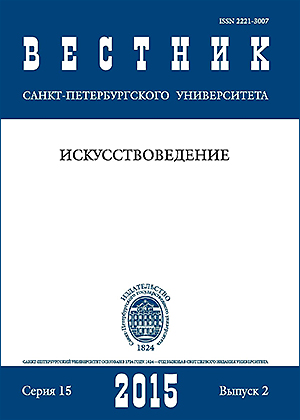Interpretation of Dostoevsky’s artistic world in Robert Wiene’s film Raskolnikov
Abstract
In the article from the point of view of interpretation of the artistic world of Dostoevsky screen version of his novel “Crime and punishment” from Robert Wiene, classicist of German expressionist cinema (by the author of famous Cabinet of doctor Caligari 1920) with the Russian actor troupe is analysed. Stylistics of picture is oriented to maximal expressiveness of imagery, brave artistic conventions are established for the achievement of that. Undoubted advantage of expressionistic expressive facilities is that they allowed to show not only the emotional state of hero but also his disharmonious, tragic perception of the world. Much more attention is paid to suffering of the hero in a film than to its causes and effects, in this connection idea of Raskolnikov is shown in a film, foremost, from a social side (which is not the basis in the novel). The screen version is characterized also by that the expressionistic leveling of psychology not peculiar to film, the traditions of acting of Russian realistic school represents psychology. Consideration of screen version allows us to conclude that the disharmony of the world represented on a screen is congenial to the philosophical filling of work, vanguard aesthetics of disproportions expresses the personal touches of the artistic world of novel “Crime and punishment”. Expressionistic art tools allow to create the cinematic equivalent of the artistic world of the novel, but meaningful installation expressionism impoverish the ideological content of the film adaptation.
Keywords:
F. M. Dostoevsky, Robert Wiene, “Crime and punishment”, Raskolnikov, cinema, expressionism, screen version, aesthetics of dissonance, “world of the soul”, realistic actor game, distorted reality, pain effect
Downloads
References
Downloads
Published
How to Cite
Issue
Section
License
Articles of "Vestnik of Saint Petersburg University. Arts" are open access distributed under the terms of the License Agreement with Saint Petersburg State University, which permits to the authors unrestricted distribution and self-archiving free of charge.






